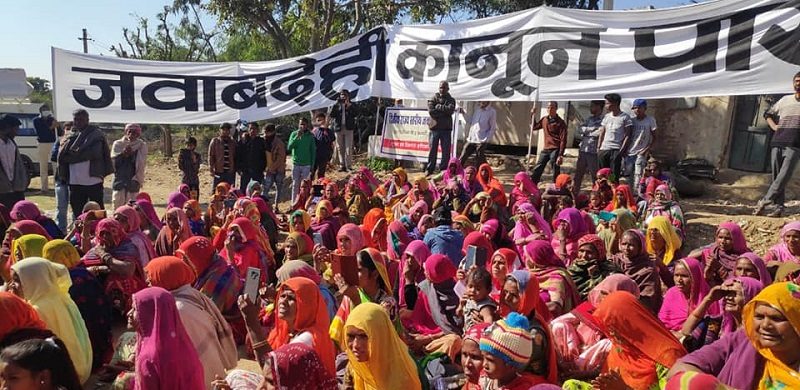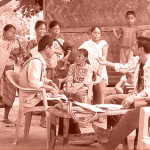
An Overview of the Jawabdehi Andolan Demanding an Accountability Legislation in Rajasthan
4 October 2022
It has been three years since the Rajasthan Public Accountability Bill was introduced in the state legislature. The Bill promises citizens time-bound delivery of public services, entitlements and redress of grievances. If passed in its current form, the ensuing law will allow citizens to access better responsive governance of their rights and entitlements. The movement for the accountability law and various actors reveals the push and pull forces that constitute citizen participation in governance.
It is important to understand the actors involved in the demand for this legislation and their evolving incentives. The legislation has been brought to the Rajasthan Assembly by the governing party, following a report submitted by the Ram Lubya Committee that was constituted to draft the legislation. Other actors within the state include lower echelons of elected representatives at the Gram Panchayat, Panchayat Samiti and Zila Parishad tiers and the bureaucrats who are tasked with implementing the legislation.
The second category of actors is civil society organisations and the third is the media. This blog will focus on the second category. Actors outside the government that have been involved include the civil society collective Soochna Evam Rozgar Abhiyaan (SR Abhiyaan), which has demanded the legislation for over a decade. The SR Abhiyaan has employed various strategies to engage with the citizenry, other civil society groups and the elected government to remain persistent in demanding change.
A prominent strategy that was employed to bring citizens together is the Jawabdehi Andolan (or Accountability Movement) across the state.
The first strategy applied by the movement was to bring together over a hundred worker unions and civil society organisations to form a unified collective. The movement began with leadership from the Mazdoor Kisan Shakti Sangathan (MKSS) identifying the need for collective action with diverse voices and building the same, in spite of disagreements.
The movement organised its first march in 2016 to spread awareness, after which the Indian National Congress government mentioned their call-to-action on institutionalising social accountability mechanisms in their manifesto in 2018. Following this, from 2019 to 2020, Jawabdehi Andolan closely tracked the Ram Lubya Committee’s recommendations on framing the social accountability law. Since then, the movement has engaged in consultations with the government on the law and now expects state action that has been delayed since the start of the pandemic. This form of engaging in different methods with the state forms the second strategy applied by the movement.
The Jawabdehi Yatra (march) across all 33 districts in the state was re-launched in December 2021 after the pandemic’s onset and is currently in progress in a new form with renewed energy. Conducting a march brings the movement directly to the people.
A third and important strategy is that of learning from other rights-based movements in social welfare. Along with mobilising citizens through marches, this movement continues to learn from other movements such as those that drove the Right to Information and Right to Food Acts. For example, they are cognizant of the challenge of ensuring that sufficient citizen voice is represented in the movement.
A fourth strategy applied by the movement is to engage in consistent media campaigns, both online and offline. The movement has reached out through various local and national news channels and has gradually increased its online presence through Facebook and Twitter to bring on-ground challenges and demands to netizens across the country. The content shared in the marches and on other pathways all drive home the same point – the need for public information and timely grievance redress of issues through legislation – by sharing stories from citizens participating in the marches.
The fifth strategy is to ensure that the movement remains rooted in a shared vision and evolves with changing needs of its members, as has emerged from some conversations by our team members with movement members.
As the Andolan continues to demand speedy action on the law, there is much to learn from these and other such strategies to understand how civil society collectives engage with the government. The next blog in the series will unpack bureaucratic and political action in passing the social accountability law in Rajasthan.
Sidharth Santhosh is a Research Associate at Accountability Initiative
Field inputs: Tajuddin Khan and Ram Ratan Jat
Editorial inputs: Avantika Shrivastava
Also Read: Unpacking Rajasthan’s Urban Employment Guarantee Programme





